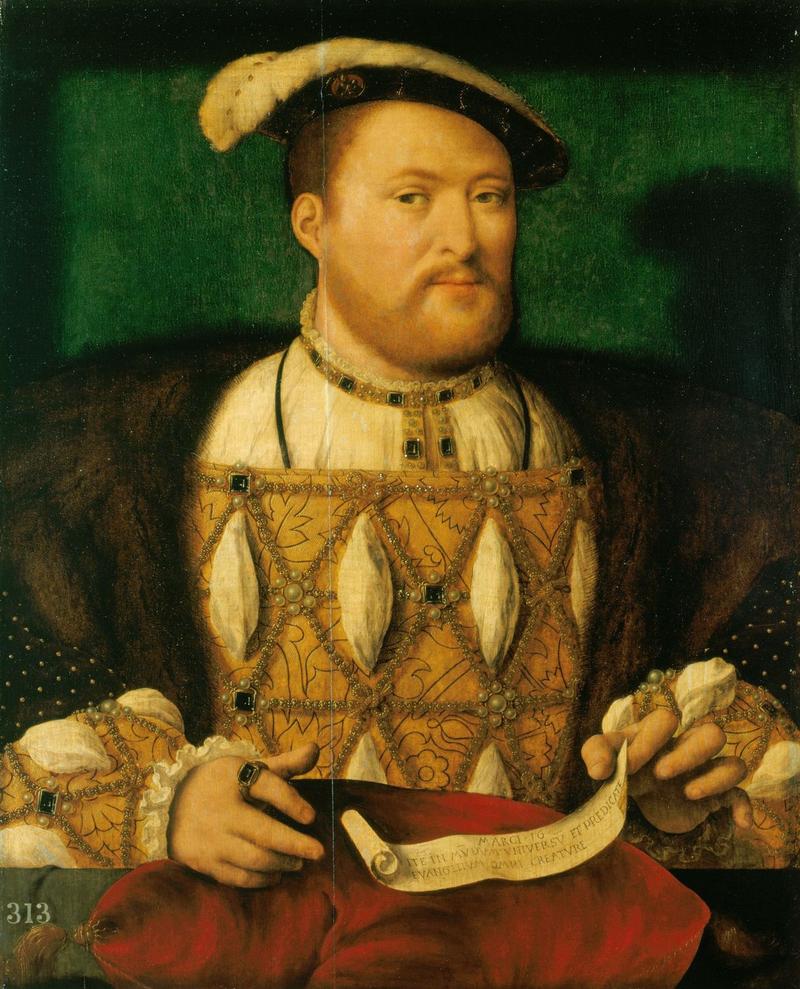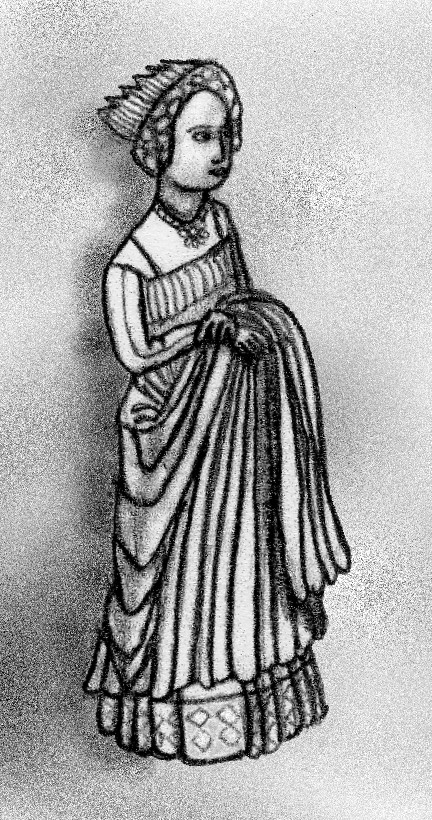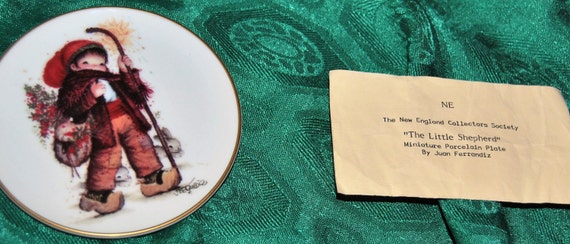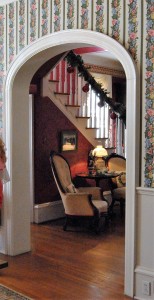Today welcome to my bit on looking at religion–mostly thru some reformation sects that developed in the 16 and 17th century….ones I learned of in reading Lamentations a very accurate fiction about Henry VIII’s England.
Pictures today are the historical Mizell house at Leu Gardens and their lovely Christmas décor.
and we won’t forget Jamie and our hanging on by our fingernails now that we’re really facing the long days of winter without our favorite series in anything but returns.
Just as a candle cannot burn without fire, men cannot live without a spiritual life. Buddha

Framed (10 1/2″ x 10 1/4″) Reproduction of 18th Century Man and Woman at a Stream
$22.00

The reformation started (according to the official story) with Martin Luther (in what is today Germany) in 1517 publishing his 95 Theses and went to between 1555 with the Peace of Augsburg, which allowed for the coexistence of Catholicism and Lutheranism in Germany or (depending on your sources) 1648 with the Treaty of Westphalia, which ended the Thirty Years’ War. The sources keep it simple….to purify the church and to depend on the Bible and not tradition for the practices and beliefs of the church.
Henry’s contribution came with his not having a son, being married to an older, and increasingly less attractive woman and the introduction into his life of someone who while attractive to the king refused to be his mistress. Henry had long been named a defender of the Catholic Church and he felt that he wouldn’t have a problem getting the divorce based on the fact that he had married his brother’s wife—a no-no but…one that had been excused by the church previously…so now he was just asking for a do over….but things had changed and the church said no way. So Henry did what any terribly spoiled and self centered monarch would do.. so in 1534, he separated the English Church from Rome and made the King (or Queen) the head of the church which has been a fact and still is with Elizabeth II the current head of the Church of England. I truly believed that Henry had little desire (with the exception for Anne Boleyn) to actually reform the church, he just wanted his way and being king he got it. So England’s conversion was a bit different and included the confiscation of the monasteries at a great personal monetary gain of the throne gives me more reasons to have my doubts about Henry…but this is not a judgement article just a historical one.
What I want to actually do today is to look at some of the more unusual (some would say radical) off-shoots of this great religious upheaval and see what their beliefs were and what they developed into in our day and age.

There should be no discrimination against languages people speak, skin color, or religion. Malala Yousafzai

One of the persons being persecuted and in fact a major player in the Lamentation book was Anabaptists. Their major beliefs make them common with many sects today including Baptists and Seventh-Day Adventist who also believe as the Anabaptist did in not baptizing anyone who couldn’t give a intelligent consent (i.e. no infant or small children).
However in addition to this belief many also believed that they should not take oaths, participate in the military or any kind of civil government, which was probably more likely to have caused them problems in everyday life than the baptism beliefs did and also resulted in prosecution by other Protestants as well as Catholics. In fact Martin Luther condemned them and the Swiss reformer Ulrich Zwlingli is said, when he learned that they were baptizing in rivers, to encourage their being drown.
Though it is thought to have developed in Zurich in 1523 there was never any particular leader or formal preachers and groups remained small and very scattered, probably in part at least because of no actual outline of beliefs so each group tended to adapt their own and also because it was basically a religion of the poorer parties and thus had no monies or well educated patrons to help with its ongoing establishment. In fact the religion had some forms of equality in most of its incarnations, something that would appear in politics some 400 years later.

Whether one believes in a religion or not, and whether one believes in rebirth or not, there isn’t anyone who doesn’t appreciate kindness and compassion. Dalai Lama

Another Sect in England pre-dated the Reformation by quite a bit–The Lollards. This sect called for political as well as religious reformation in the mid-14th century and was led by John Wycliffe, who originally taught at Oxford University, but was dismissed in 1381 for his criticism of the church. The name in fact was originally used for those of low education and intelligence and eventually became the word in England for any reformer.
The church had various beliefs and issues, called conclusions and included a concern at the wealth that existing churchmen (from monks to bishops) seem to all be involved in accumulating. Another issue was with the belief of the church that the wine and bread at the mass actually became the blood and body of the savior which they felt was not clearly defined in the Bible. They also were for a separation of church and state, as well as questioning the reverence the church transferred to objects like the cross and nails that were placed in Christ’s hand at the crucifixion to name just a few. They were a religion that became increasingly popular and even knights, gentry and members of the clergy over the years began to convert to their beliefs.
In 1401 the government under Henry IV passed a law for the execution by burning of heretics, though the first Lollard to die this way was executed before the law was passed. By 1414 the Lollards actually rebelled and mounted an uprising which was quickly put down by Henry V (the warrior king who defeated the huge French army at Angicort). Defeated but not dead the movement which was now mostly trades people and artisans went underground, but continued to exist and was firmly behind Henry VIII’s reformation efforts. It is said that the Lollards influenced Martin Luther and his eventual reformation. Many in today’s world believe that the reason that Luther was successful where the Lollards weren’t was due to
the printing press which gave Luther and later reformers a marked advantage over those prior to its invention.

It is easy to talk on religion, but difficult to practice it. Ramakrishna

Metal topped Hinged Mini-German (West) Beer Mug
$15.00

for those of you who wouldn’t throw Frank outa bed—I do not want to know that some of my readers are into Black Jack—OMG grrrrrrrrrrrrrrrrr…anyway check out the next year promise of return: http://www.tvguide.com/news/outlander-season-3-spoilers-voyager-more-frank-tobias-menzies/
 And will Claire and Jamie take up from where they left off? http://www.newseveryday.com/articles/56157/20161129/outlander-season-3-spoilers-jamie-fraser-and-claire-randall-relationship-continuing-or-ending-will-love-conquer-all.htm
And will Claire and Jamie take up from where they left off? http://www.newseveryday.com/articles/56157/20161129/outlander-season-3-spoilers-jamie-fraser-and-claire-randall-relationship-continuing-or-ending-will-love-conquer-all.htmand check out the convention: http://www.qconline.com/life/orion-woman-realizes-dream-with-outlander-convention/article_f62f18bd-52d9-5652-81f4-46e9030aace9.html
just because

Terrorism has no nationality or religion. Vladimir Putin

-
New England Collectors “The Little Shepherd” Minature Porcelain Plate 1983
$26.00I would rather live my life as if there is a God and die to find out there isn’t, than live as if there isn’t and to die to find out that there is. Albert Camus

Victoria/Czech Dessert Motif TEA SET with 4 Small Cups and Saucers, Creamer and Serving Plate
$150.00
To gather with God’s people in united adoration of the Father is as necessary to the Christian life as prayer. Martin Luther

1977 Precious Moments “Love LIfted Me”
◅
▻





